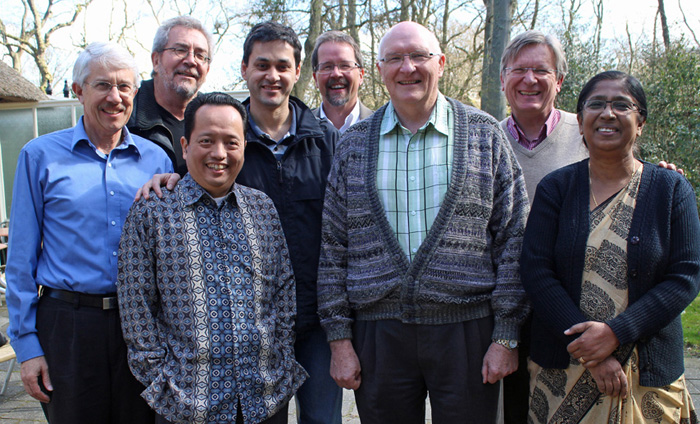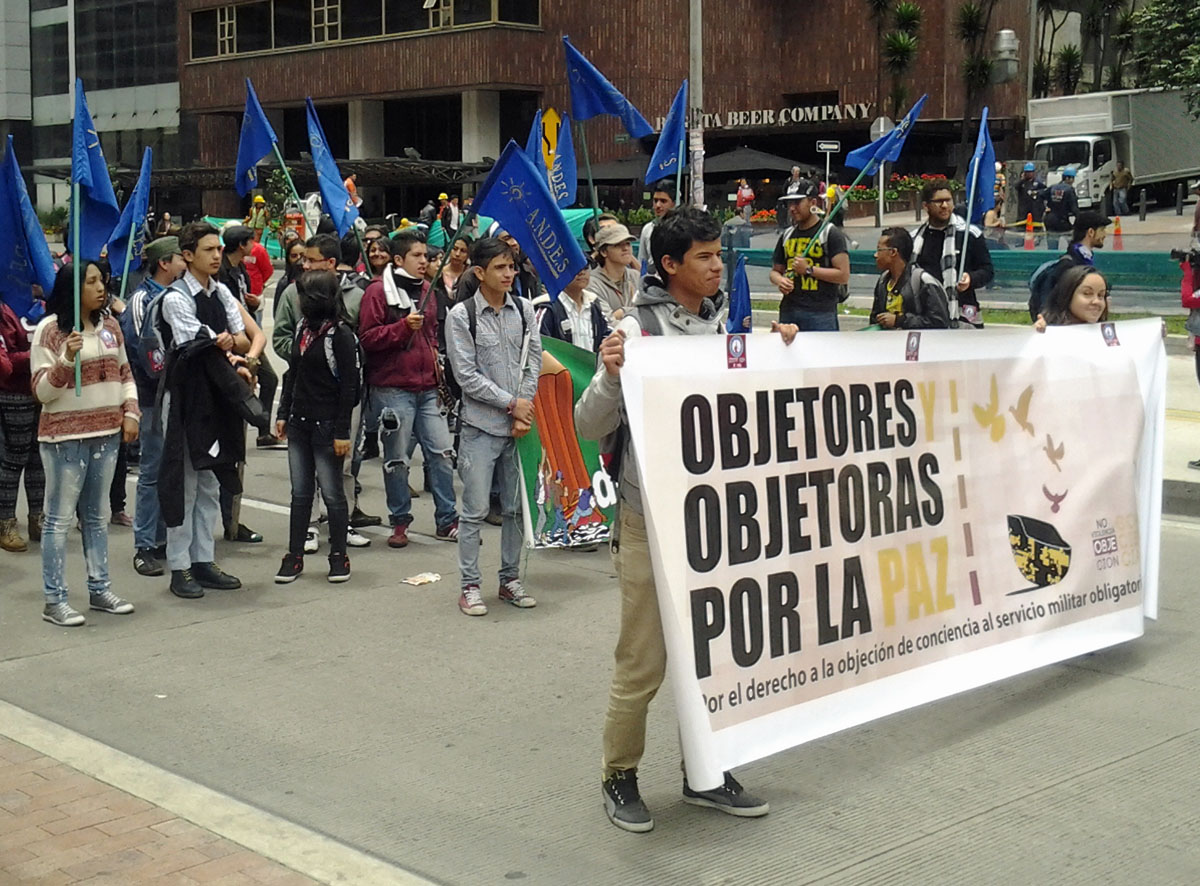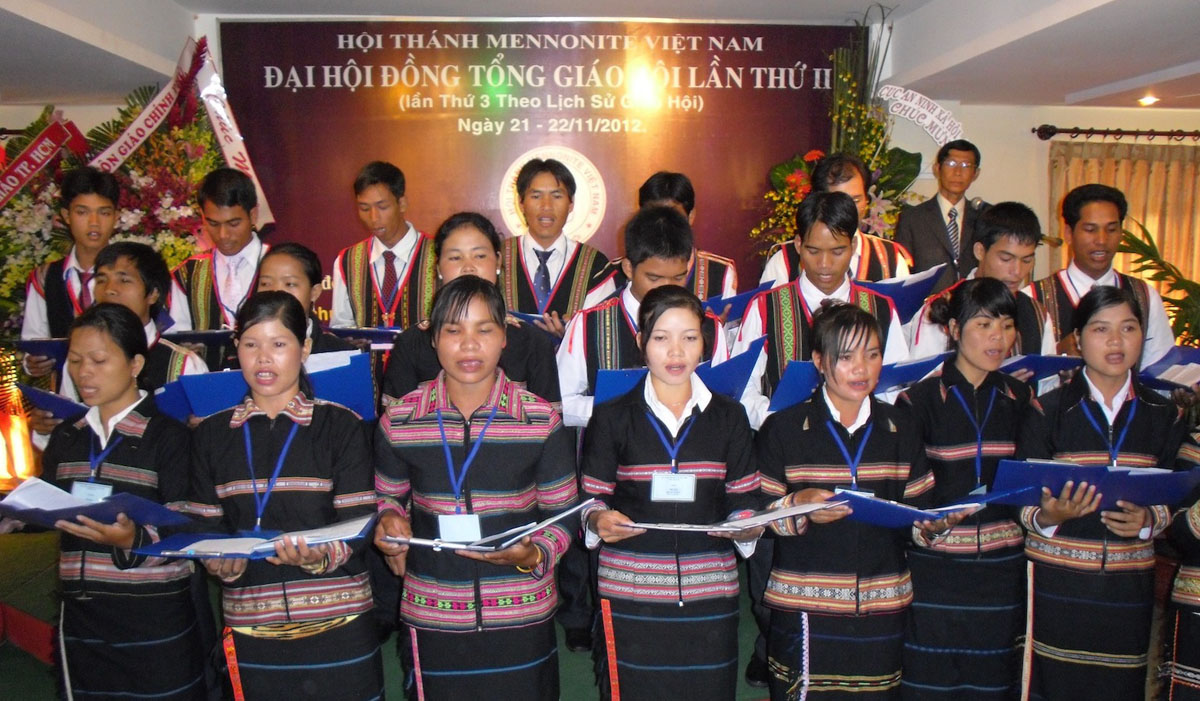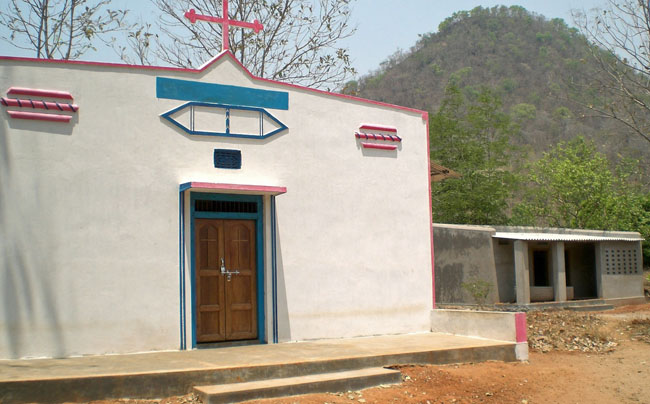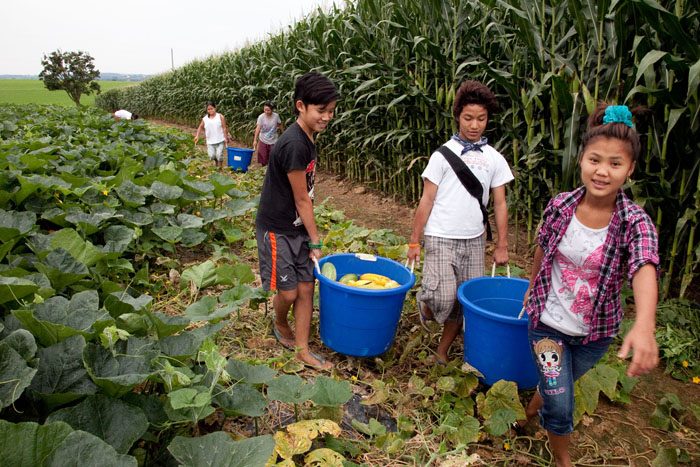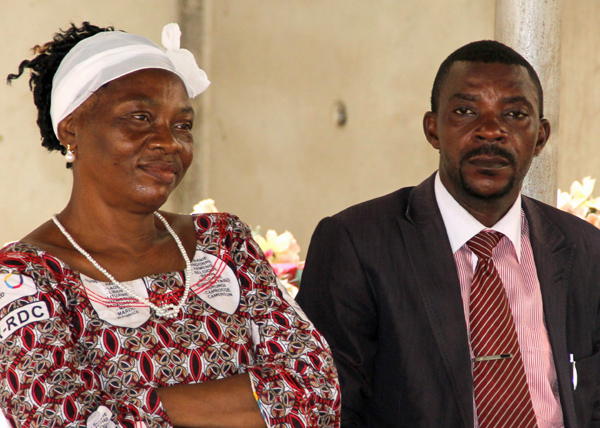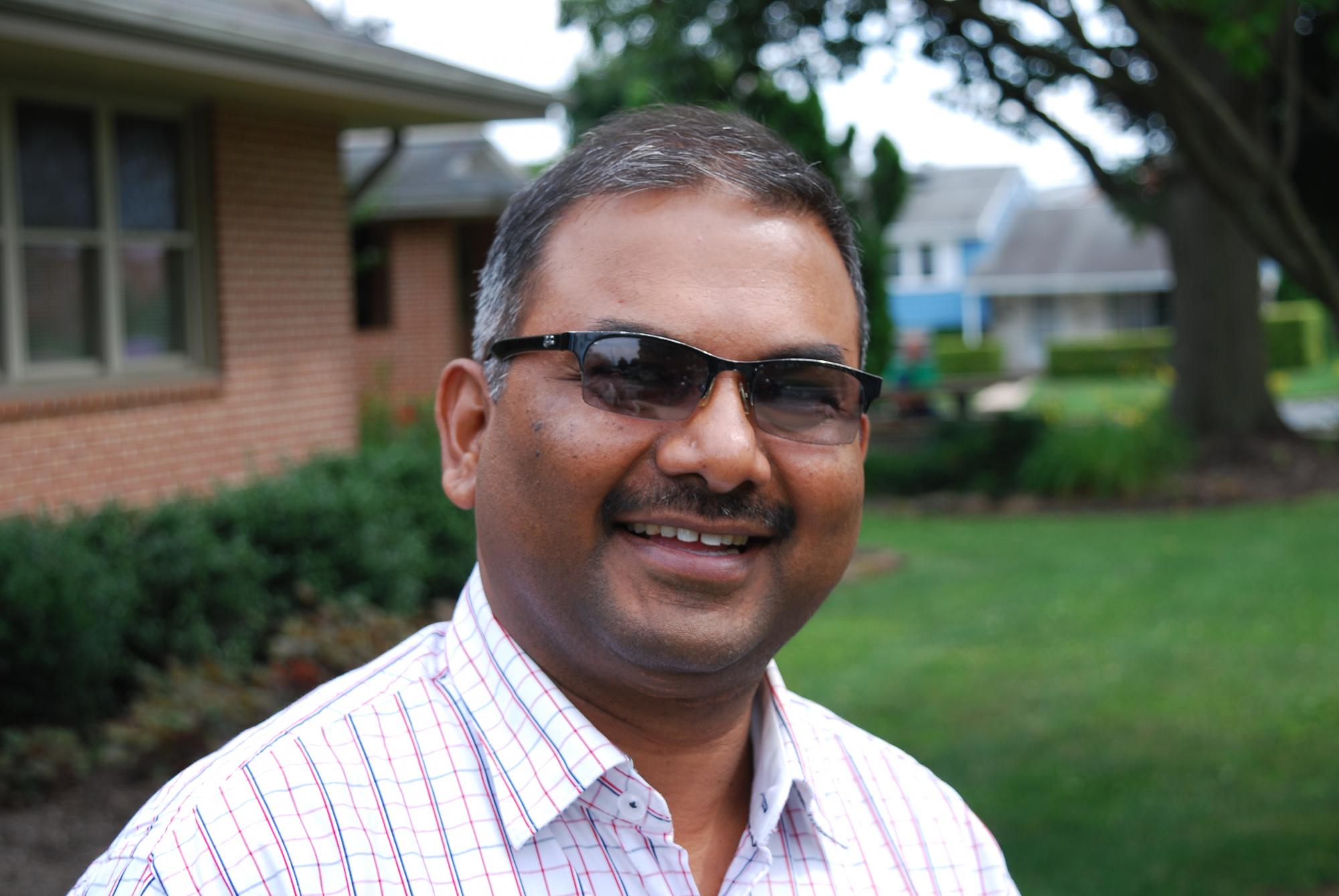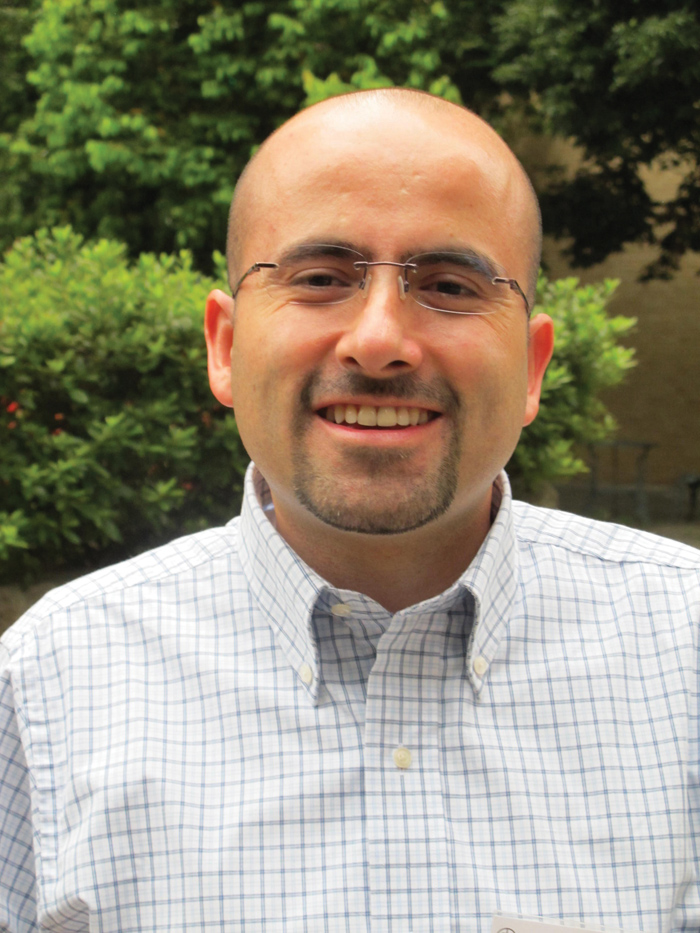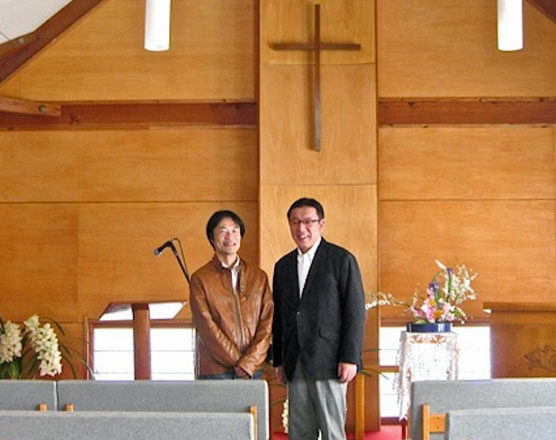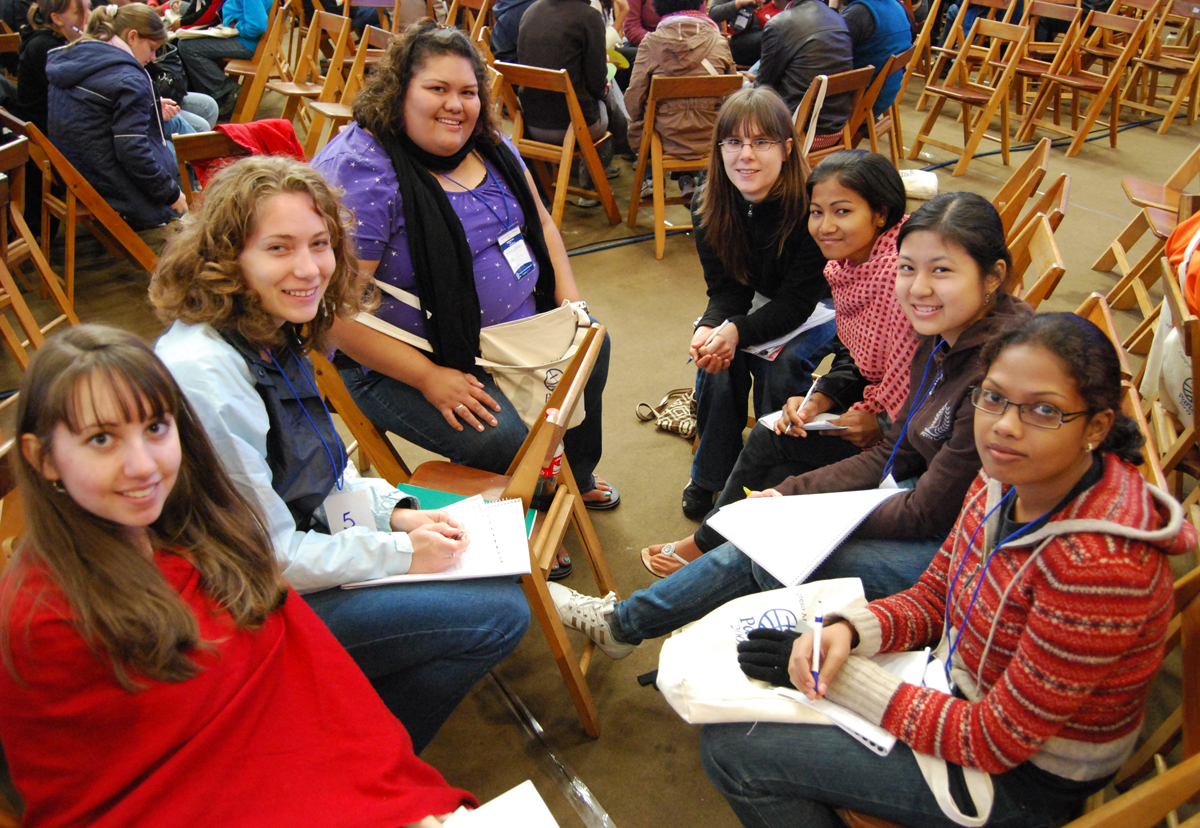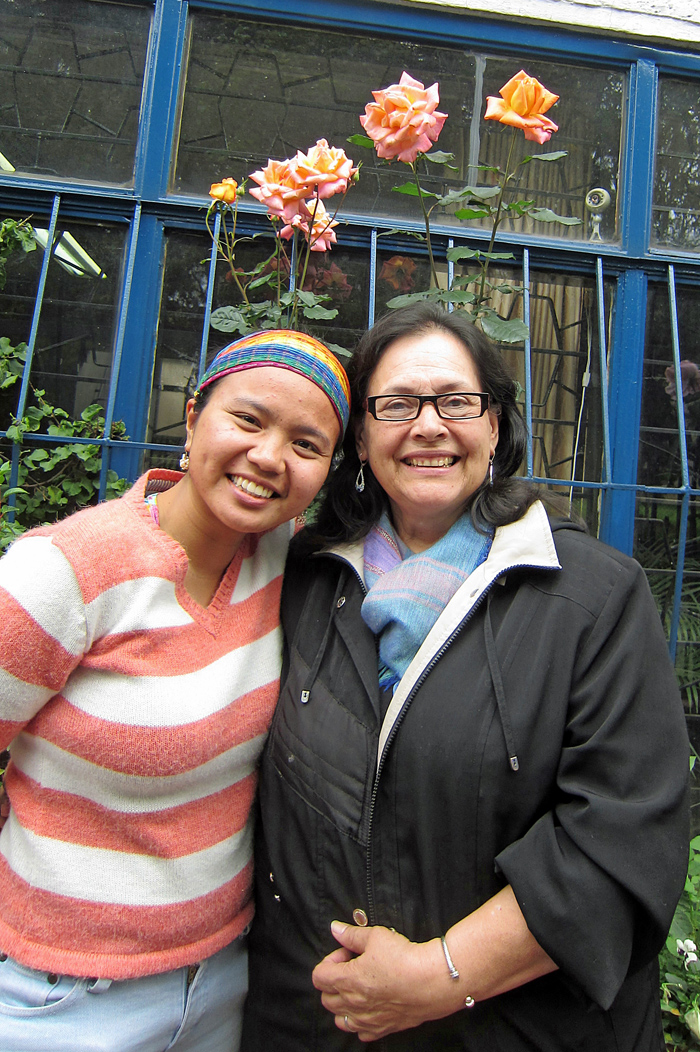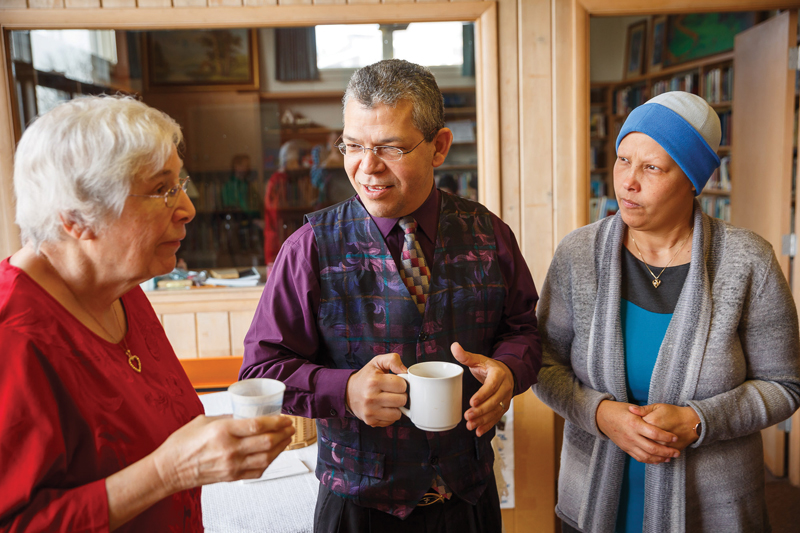-
Commissions advance MWC mission in rare face-to-face meetings
Schoorl, Netherlands – From 19-24 March, leaders and members of the four Mennonite World Conference Commissions met together for a time of face-to-face discussion, reflection, worship and strategic planning to advance the mission of MWC. It was only the second such meeting of the four Commissions since their formation in 2009. They last met face-to-face
-
Colombian peace group lends support to South Korean conscientious objector
Bogotá, Colombia – For Jenny Neme, director of Colombian Mennonite organization Justapaz (Just Peace), recent support for South Korean conscientious objector San-Ming Lee was a natural occurrence. It sprung out, she said, of an attempt to “seek solidarity and mutual support, based in the prophetic role of the churches to engage in political advocacy in the
-
Police attack Mennonite church gathering in Vietnam
Vietnam—Security police assaulted a large group of pastors and theological students gathered in their church center at a provincial town just north of Ho Chi Minh City on the eve of a renewal conference and graduation ceremonies for students of the theological training program. The Evangelical Mennonite Church, a church not officially registered in Vietnam,
-
Church and community hall a place for district gatherings
Nuagaon, Odisha, India – In early May 2013, the Brethren in Christ Church in the state of Odisha, India, reported the completion of construction of a church and community hall and pastor’s quarter in the village of Nuagaon. The new facility, which can accommodate at least 500 people on the floor, will be used to
-
On the way to PA 2015: Congregation creatively raises funds
Lancaster, Pennsylvania, USA – Habecker Mennonite Church never anticipated a call to refugee resettlement. But the will of God became apparent, slowly at first, and then with increasing demand. The refugees from Burma/ Myanmar all need transportation, jobs, social services and help learning the English language. All seek friendship and relationships. Habecker has developed a
-
Delegation recommends supports for Angolan churches
Angola – “Come and visit us,” urged representatives of Angolan Mennonite churches during the May 2012 Mennonite World Conference (MWC) General Council meeting in Switzerland. They said they felt isolated and abandoned following the end of Mennonite Central Committee (MCC) programming a decade ago, and after some leadership struggles in their churches. The MWC Africa Caucus, together with Mennonite Central
-
Mennonite World Conference Heads Into Visa Issue
Recognizing that visitors to the U.S. from the Southern Hemisphere often find it difficult to get visas, Mennonite World Conference (MWC) is taking steps to try to keep the situation from limiting attendance at its global Assembly next summer. “When we invited the global church to the U.S. for the Assembly, we knew that difficulty
-
A Hard Question
Some months ago I had the privilege of visiting our churches in Malawi. There we were, along with delegates of several local Brethren in Christ (BIC) congregations, gathered under a tree in order to worship God and speak about our global communion. After a vibrant time of worship I had the opportunity of speaking about
-
Japanese Anabaptist leaders oppose changes to peace article in constitution
Oita, Japan – On Japanese Constitution Memorial Day, 03 May, fourteen Japanese Mennonite and Brethren in Christ leaders issued a call against proposed amendments to the Japanese constitution, particularly to article 9, the so-called “peace article.” On the same day, national newspapers released polls showing that proposed amendments to the constitution are gaining support. Under
-
Urgent call for workshop proposals issued by MWC
Bogota, Colombia – Mennonite World Conference is urgently seeking submissions for workshops and seminars at Assembly Gathered, by the deadline of 1 November. We are seeking workshops and seminars that challenge, inspire and unite the church as a global peace church for mission and faithful witness. There is space for up to 200 individual workshops
-
YAMEN! experience feeds passion for helping children
Joint release by Mennonite World Conference and Mennonite Central Committee Bogotá, Colombia – Within days of her arrival in Bogotá on 21 August 2013 for her YAMEN! term, Rut Arsari already knew it would be difficult for her to leave. The wonderful people she would meet and the close relationships she would develop would make
-
Hope crosses boundaries
How God uses relationships to build the church The global Mennonite church is diverse and vibrant! We grieve that parts of this faith family live in areas plagued with poverty, violence or religious conflict. But the most important message Christians bring to a suffering world is hope: God cares, the followers of Jesus care and
